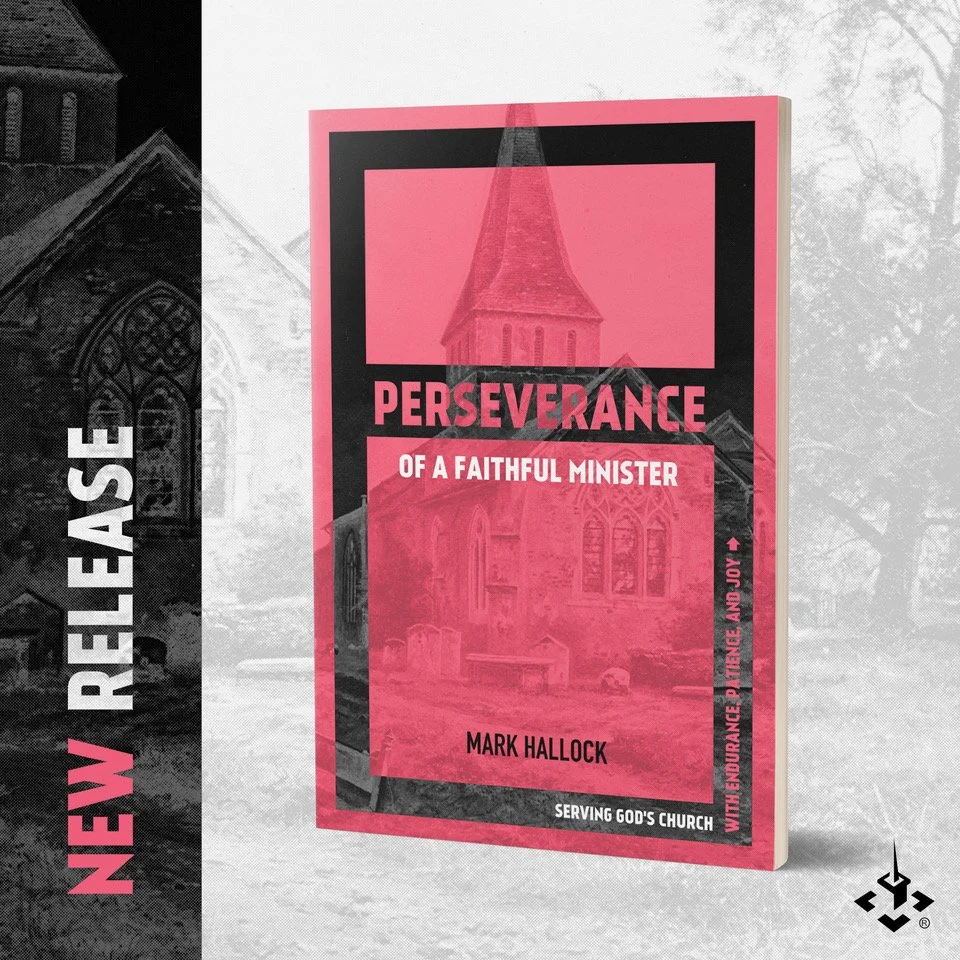We are happy to announce the upcoming publication of Assistant Professor of Applied Theology Mark Hallock’s newest book, the Perseverance of a Faithful Minister, which will be available February 15. In it, Mark speaks specifically to pastors in church revitalization contexts about the crucial importance of perseverance for a thriving ministry. This excerpt comes from a chapter entitled “Developing and Deploying Leaders.”
John Newton on New Year's Evening, 1774
Jephthah and the Dangers of Deficient Theology
Prayers of a Parent
Leviticus & the Meaning of Holiness
A Few Books from our Shelves
We can’t help but agree with C.S. Lewis, who said, “You can never get a cup of tea large enough or a book long enough to suit me.” All of us at Tennent are book lovers, and it is largely by reading that we have been shaped to know and love Christ, to engage the world’s great thinkers, to walk a mile in someone else’s shoes. From time to time we would like to share a few favorite titles from our own bookshelves for your reading pleasure. Here’s a small sample of books that are fascinating, encouraging, challenging, and lively. Enjoy!
On Magnets and Mothers-in-Law
Exodus 20: The Perfect Law of Liberty
Alex Kirk reflects on one of the most misunderstood passages in the Bible. He writes, “The Ten Commandments in Exodus 20:1–17 stand as a summary and introduction to the law. To unlock their freedom and beauty, we must see that they flow from who God is. God is our system of morality. And he is not abstract. Right and wrong flow from God’s character and promote relationship with him. That’s what the Ten Commandments are about: they liberate you to live with the LORD.”
Family Discipleship and Children's Church
Tennent is committed to thoughtful engagement of the whole family. Not only do we welcome families to attend our residencies, but we want to walk beside families to encourage and nurture whole-family discipleship. Today we’ve invited Frank Trimble, the Director of Training and Consulting for Family Time Training, to share his vision for including children in corporate worship.
Exodus 33–34: God’s Character and the Triumph of Grace
In Part VI of our series, The Theology of the Pentateuch, Alex Kirk explores what it means for us to know the name of our God. “Christ’s death and resurrection is the ultimate expression of his character, the ultimate display of grace triumphing through justice. This is how he draws us into a relationship. He tells us his name so that he can call us ‘friend’ and we can learn to love like him.”
Multiplying Disciples
In his message, “Multiplying Disciples,” from the CFC Non-Ignorable Conference, Michael Morgan shares his concern over a present-day crisis of discipleship. What are preconditions for Christ-exalting multiplication? What are distinguishing marks of a cruciform culture? What are symptoms of unhealthy pseudo-discipleship?
Women in Seminary
“As women engage their minds in theology, leading to ignition of their hearts in worship of Jesus, it is inevitable that their lives will then be propelled forward on mission. And what an immense mission exists in our time (Matt. 9:37), where women’s distinct perspective and gifts are uniquely needed.”
Exodus 3: God’s Name is His Presence to Save
Hurt by the Church
Dietrich Bonhoeffer wrote, “If we do not give thanks daily for the Christian fellowship in which we have been placed, even where there is no great experience, no discoverable riches, but much weakness, small faith, and difficulty; if on the contrary, we only keep complaining to God that everything is so paltry and petty, so far from what we expected, then we hinder God from letting our fellowship grow according to the measure and riches which are there for us all in Jesus Christ.” In their upcoming book, Why Church Matters: Going All In with the Broken Yet Beautiful Body of Christ, Mark Hallock and Aaron Weber address the reality of hurt caused by the church, while also offering hope from God’s Word. We are happy to share an excerpt from their book here today.
Genesis 22, Testing, and Faith
Rethinking Seminary Podcast
Engaging Ecclesiastes
Pastor Mark Hallock of Calvary Englewood Church just wrapped up a sermon series on the book of Ecclesiastes, a rarely-preached and often misunderstood corner of the Bible. We asked him to share a little about his experience. As he says, “If you’re gospel-centered, all of it's a springboard to our joy in the Lord: Jesus is better, Jesus transcends all this, Jesus is our King and he reigns over all these things.”
An Inexhaustible Thesaurus
Tennent’s Greek tutor, Jeremy Conrad, reflects on the discipline of studying the biblical languages. He asks, “When faced with the challenge of learning Biblical Greek, it’s valid to question why we would subject ourselves to this type of discouragement when others have already done the work of translation. After all, isn’t it a lot of effort for relatively little gain? What blessings—what joy-enhancing benefits could possibly allure us to this discipline?”
Naked and Unashamed
Third in our series on the Theology of the Pentateuch, Old Testament professor Alex Kirk shares his reflections on an often-overlooked aspect of the Fall: what does it mean that Adam and Eve were “naked and unashamed”? What did it mean for them to become conscious of this? He explains, “After she eats, the Serpent’s words come true but there is a cruel twist. Divine knowledge becomes nothing other than self-consciousness—that sinking feeling that you are on a stage with no clothes on.”
The Seductiveness of Downplaying Doctrine
The idea circulates that theological study is futile. Why study the ineffable God? Many a modern Christian seems to gravitate towards chucking doctrine, perceiving the pride and folly of claiming to know with our small brains what can only be understood by our omniscient Father. Rather than advocating a heaping helping of humility, some are seduced by a false dichotomy: doctrine or mercy, doctrine or mystery, doctrine or mission.





















